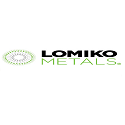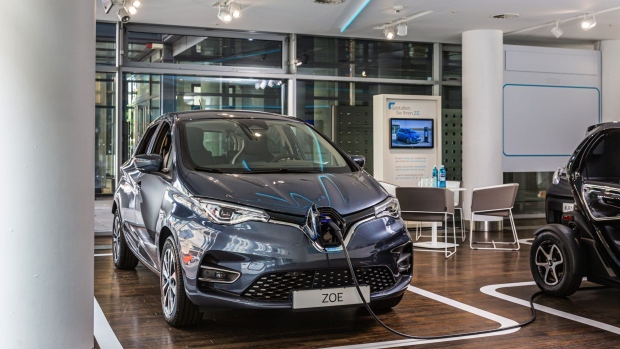SPONSOR: Lomiko Metals is focused on the exploration and development of minerals for the new green economy such as lithium and graphite. Lomiko has an option for 100% of the high-grade La Loutre graphite Property, Lac Des Iles Graphite Property and the 100% owned Quatre Milles Graphite Property. Lomiko is uniquely poised to supply the growing EV battery market. Click Here For More Information
One of the most overlooked and undersold benefits of converting to electric vehicles is the impact that they have on their owners’ wallets.
A myth has emerged about their running costs that have seen people overlook the long-term financial benefits that EVs afford.
This is a welcome addition to their environmental credentials amidst rising fuel prices and increasing levies against internal combustion engine (ICE) vehicles in city centres.
Today’s article seeks to bust this myth and show you why switching to EV could save you money, and save the planet.
EV’s: Pricing up the difference
As of the writing of this article, we concede that the average EV costs more than the Internal Combustion Engine (ICE).
Although we are witnessing a rapid change in this area.
The latest generation of electric vehicles are coming to market at the same cost as their petrol or diesel counterparts.
Furthermore, we can compare the two best sellers in each category, the ICE Ford Fiesta, and the EV Nissan Leaf.
We see that the €4,000 ($4,490/£3,400) difference in purchase price can be overcome within just three years for the average driver.
Talking tax
Vehicle tax rates are calculated based on the car’s carbon dioxide (CO2) emissions per kilometre.
Tax breaks for zero-emissions vehicles, alongside governmental incentives such as grants, have been a key factor in the growing number of EVs on the road.
A recent study by the International Council for Clean Transport found that EV owners could save as much as 27% each year compared to driving diesel equivalents.
Their analysis, which compared the same make and model of vehicles across EV, petrol, and diesel found that drivers in Norway would save 27% in running costs by going electric.
The average driver in the study could save between 11-15%.
The UK offered the lowest savings in running costs at 5% due to the recent cuts in grants for EVs.
The average ICE in Europe emits 112g/km of CO2, equating to €153 (£140) per year in tax.
In addition, the average EV offers around €70 ($78/£60) per year in servicing savings.
Predominantly there are fewer moving parts in electric vehicles so they create less friction and therefore less wear.
The lower average running temperatures also help to reduce wear and offer greater efficiency.
Charging the change
Finally, the most obvious saving comes from the fuel source that is used to power each vehicle.
Based on current electricity prices, a car costs 15c per kWh to charge ($0.17c/£0.13), meaning that a mid-range EV driving around 9,000 miles per year would cost €274 or 2.7c per mile in running costs.
This is vastly cheaper than the petrol equivalent of the same vehicle, which would cost around €965 ($1,084/£825) per year to refuel, costing 9.1c per mile.
In fact, according to the UK Government’s Ultra Low Campaign, the average ICE costs 12c per mile to run.
The difference is even starker when you consider that the most efficient ICEs covert just 17-21% of their fuel into power, while EVs deliver around 59-62%.
Furthermore, when teamed with localised renewable energy sources, electric vehicles can save you even more money.
And of course, help you push towards a neutral carbon footprint for energy consumption.
Low wear, fewer tears
An oft-overlooked benefit of electric vehicles over their ICE counterparts is that their motors are highly simplified.
They have fewer moving parts and they do not require regular oil changes to ensure that they run efficiently.
The upside of which is that wear is greatly reduced, as are maintenance costs – meaning fewer trips to the mechanic and a potential saving of around €70 (£60) per year.
In addition, with great gains being made in battery and motor efficiency, technical issues can be overcome through wireless software updates sent directly to your electric car.
A great example is Mercedes’ innovation of acclimatising batteries to their ideal temperature in advance of you starting go charge.
This is not a technical issue per se, but one that elongates the life and increases the efficiency of the batteries.
You can find out more about this in Robert Llewellyn’s test drive of the Mercedes-Benz EQC.
Preparing for the future
While many are choosing not to consider the future of their ICE vehicle, it is clear that their days are numbered, and that they will not continue to hold their value in the years ahead.
Paris has led a number of global cities in legislating a ban on diesel vehicles from 2024.
This has taken the next step of banning the sale of all ICEs from 2030 as the French capital aims to become carbon-neutral by 2050.
We expect this trend to increase in the coming years as lawmakers push to meet climate targets.
They also want to cut the number of deaths associated with carbon emissions from traffic
This is estimated to account for nearly 500,000 early deaths per year in the EU alone.
Can you afford to miss out on the benefits of electric vehicles? In the face of an accelerating climate crisis, the world can’t.
SOURCE: https://irishtechnews.ie/electric-vehicles-are-cheaper-to-run-this-is-why/



